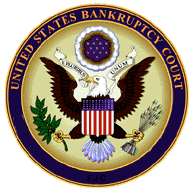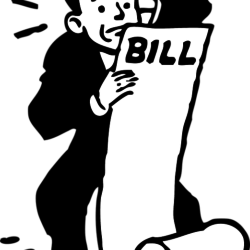If you have current monthly income that prevents you from qualifying under the Means Test for Chapter 7 bankruptcy, or if you are in foreclosure, or if you have tried to modify your mortgage and have been denied by your lender, or even if you have fallen behind after modifying your mortgage, I can help you file a petition for protection under Chapter 13 of the U.S. Bankruptcy Code.
In fact, Chapter 13 bankruptcy was initially designed for homeowners who were in foreclosure to allow them to repay their mortgage arrears as well as all, or a portion of, their unsecured debts under the protection of the United States Bankruptcy Law.
While ...
Read More...
When to File for Chapter 13 Bankruptcy
Chapter 7 bankruptcy may be quick and seem far less of a hassle than Chapter 13, but there are certain scenarios where Chapter 13 may be better than filing for Chapter 7 bankruptcy. Sometimes, you have no other option other than filing for Chapter 13.
Image by AlphaBaby - yayimages.com
So how do you decide whether your should file for Chapter 13 bankruptcy? Let’s find out.
Most people would consider Chapter 13 an option when they’re ineligible for Chapter 7 Bankruptcy. This happens when:
Your average monthly income in the six months period prior to the filing date exceeds the median income level in your state for your household ...
Read More...
Quick Tips to Build Your Life after Bankruptcy
Bankruptcy lawyers in New York, often come across people/families who become victim of the recurring spiral of financial crisis only because they do not know how to get out of debt. Truth is that most people are unaware of how to start anew after a bankruptcy episode – they tend to repeat their past mistakes over and over making it difficult for themselves to emerge out of their ever-persisting hardships.
The road to recovery is difficult and it requires solid perseverance and dedication to accomplish. But from where we see it, who wouldn’t want to live a debt-free life without having to worry about due dates and interest rates?
These ...
Read More...
How Not to Run Into Bankruptcy
Whether it’s unemployment or a long established habit of overspending, there are a number of different reasons that can lead to potential financial difficulties for you and your family. And sometimes these financial down spirals can eventually force you into considering a bankruptcy declaration. However, bankruptcy is not always a viable option and hence, it is often better to avoid it altogether.
If you fear possible bankruptcy in the near future, these tips can help you recover.
Deal With the Credit Cards and Creditors First
Most people own multiple credit cards that have different due dates for payments. This often causes the ...
Read More...
Does Declaring Chapter 7 Bankruptcy Actually Help You?
Rich Feinsilver is an experienced bankruptcy lawyer who will take the time to discuss with you your decision to file, since this is not something that one should make 'on the fly'. If you so choose to file personal bankruptcy, the law allows you to choose between Chapter 13 or Chapter 7 bankruptcy.
While both scenarios have their pros and cons, this post is focused on highlighting the reasons that make Chapter 7 a better option for declaring bankruptcy, as noted by an experienced bankruptcy attorney.
The Legal Fees and the Process
Typically, a Chapter 7 bankruptcy case takes around five to six months at max to be resolved. On the ...
Read More...
History of Bankruptcy
Bankruptcy has existed in the United States ever since the first U.S constitution was framed in late 18th century. What is bankruptcy? In simple terms, bankruptcy is a declaration by the judiciary that an individual or entity does not have the ability to pay off its debt. Providing and governing a well-organized and just liquidation of insolvent debtors estates was the purpose bankruptcy laws were passed. Ever since the Middle Ages, this purpose has been an important bankruptcy legislation aim.
The first official laws related to bankruptcy were passed in England in 1542. At that time, bankruptcy was considered a crime and bankrupt ...
Read More...
Understanding the 2005 Bankruptcy Law Changes
In April 2005, a major bankruptcy system reform known as the Bankruptcy Abuse Prevention and Consumer Protection Act of 2005 was passed. Congress passed this reform and the then President George W. Bush signed it into law. In a number of ways, this reformed bankruptcy including stricter eligibility requirements. Although the aforementioned law was passed in April 2005, it wasn’t until October 2005 that it took full effect. However, there were some changes that became immediately effective after President George Bush signed the legislation in April 2005.
Before the aforementioned law took effect, filers were able to choose the bankruptcy ...
Read More...
The Advantages of Filing for Bankruptcy
When things don’t go as planned and you find yourself in a situation where your debt is consistently higher than your income, experts recommend considering filing for bankruptcy.
Specifically, your should declare bankruptcy when:
You have to pay for daily necessities with your credit cards. You have no cash pay your grocery or utility bills and you have to add on to your debts to afford bare necessities.
You’re missing out on your payments and the interest rates are climbing. Most lenders, specifically credit card companies will hike the interest rates. Once they go as high as 30% you’d be paying mostly interest with the principal ...
Read More...
What are the Pros and Cons of Declaring Bankruptcy Under Chapter 13?
Chapter 13 bankruptcy is also known as wage-earner's bankruptcy or reorganization bankruptcy. It is different from Chapter 7 bankruptcy in that it prevents the surrendering of assets to discharge the debt. Individuals that file for Chapter 13 bankruptcy do not have to sell any of their properties to get out of the debt burden. As a result, most people prefer declaring bankruptcy under this plan.
That being said, Chapter 13 is not for everyone. There are certain disadvantages with this plan that make it unsuitable for individuals. Here, we will discuss both the pros and cons of Chapter 13 bankruptcy that will help you in making an informed ...
Read More...
Bankruptcy in Long Island: 2016
According to the statistics by the United States Bankruptcy Court for the Eastern District of New York, the bankruptcy rates in Long Island fell 14.1 percent in 2015, with an average of around 411 bankruptcy filings a month from January to November.
The decline in bankruptcy filings in Nassau and Suffolk counties shows that people are generally doing better at handling debt. There is definitely a reason that Long Island is rated 79th on Forbes list of Best Places for Business and Careers.
Even if these statistics paint a happier picture, it is of course imperative that consumers keep up this state of being debt free. For those looking ...
Read More...
- « Previous Page
- 1
- 2
- 3
- 4
- …
- 6
- Next Page »


 What Makes Me Different From the Others?
What Makes Me Different From the Others?